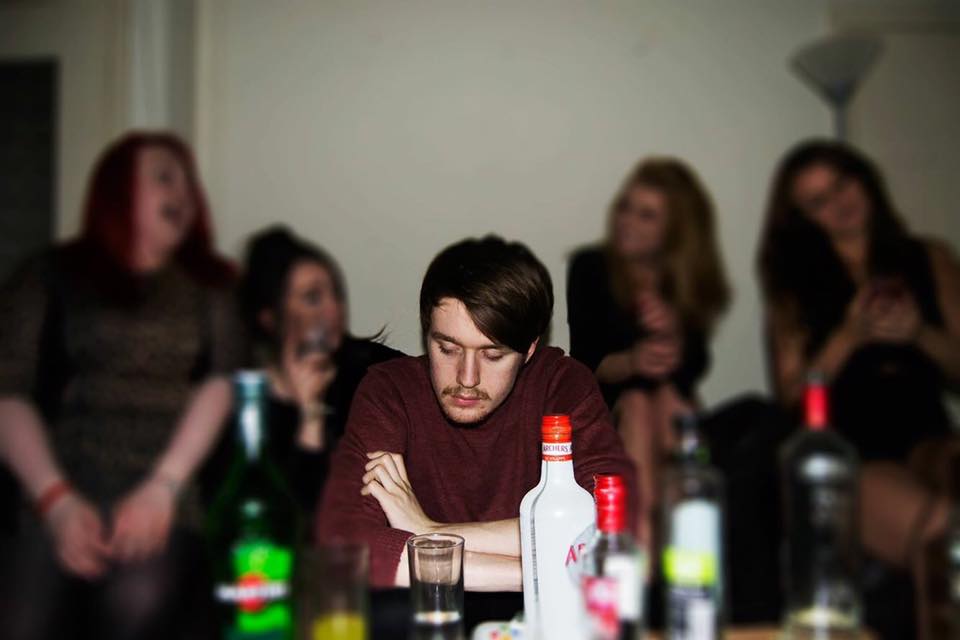Becoming Ben: An actor’s development
‘Actors must reach out from their habitual selves towards a character, rather than imposing themselves on a character’ (Alfreds, 2014, 204).
Ben, one of the central characters to the narrative of ‘Suitcases in the Hallway’, was without a doubt one of the toughest roles that I, as an actor, have faced. The horrendous and vile act that has happened to Ben and the way in which he copes with it was something that I approached with considerable delicately. I initially followed John Abbott’s advice on how to begin the rehearsal process. On my first read through of the finished script, I followed Abbott’s advice of approaching it ‘as objectively as possible’ (Abbott, 2012, 61) and making ‘notes as you go along’ (Abbott, 2012, 61) to gain clear picture of the events of the play. I then compiled three lists from the quotes I gathered from the play to form a basis for my portrayal of Ben: ‘Everything my character has said about himself’, ‘everything other characters have said about my character’ and ‘everything my character says about other characters’. With these lists completed, I had a rough outline of how I would portray Ben. I therefore began to edit my script in the shape of units, actions and objectives, three key methods of annotating the script that allows us to ‘transform ourselves’ (Alfreds, 2014, 204) into the character effectively.
I then continued with my research into bringing the role of Ben to life. I began to read the stories of those who were survivors of male rape. A prime example of a story I read was of Stuart on the website Survivors UK, who stated that the thing that he was most scared of was ‘the shame the embarrassment what would people think of me, so dirty, disgusting and soulless’ (Stuart, undated). Stuart’s powerful story and the revelation as to why he would not tell anyone led me to pinpoint Ben’s through line, the overall object that informs ‘every scene in which the character appears’ (Alfreds, 2014, 56): Ben seeks to avoid telling Allie the truth in order for her to not be hurt and so that he is not seen by her in a negative way.
The further the process went on, the more I began to feel the angst and despair that Ben was experiencing. Through the writing of inner monologues, improvising ‘the subtext out loud’ (Abbott, 2012, 143) and ‘shifting balance of status’ (Abbott, 2013, 142) between fellow actors in rehearsals, I was able to alter my movement and thus fully develop the character of Ben. I and Catherine Hayes, the actress who portrayed Allie, also discovered more about our characters through our devising of the final scene of the play. Allie’s anger at Ben and the note that Ben leaves her were two pivotal points in the play that I and Catherine devised that allowed us to further understand the emotional strain that both of these characters were going through.
On the night of the show, I decided to write the letter which Allie reads on stage ten minutes before the performance started. This allowed me to effectively engage with and become the character while also giving Catherine (Allie) the chance to feel raw and true emotion on stage when reading the letter for the first time.
Bibliography
Abbott, J. (2012) The Acting Book. London: Nick Hern Books Limited.
Alfreds, M. (2014) Different Every Night. London: Nick Hern Books Limited.


